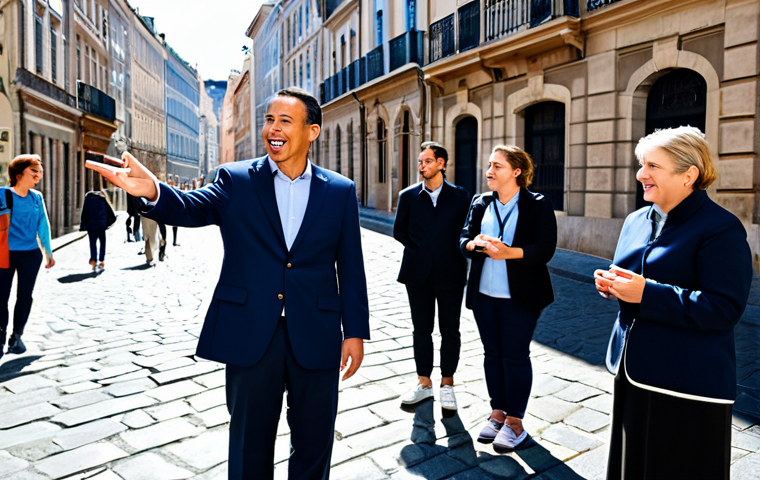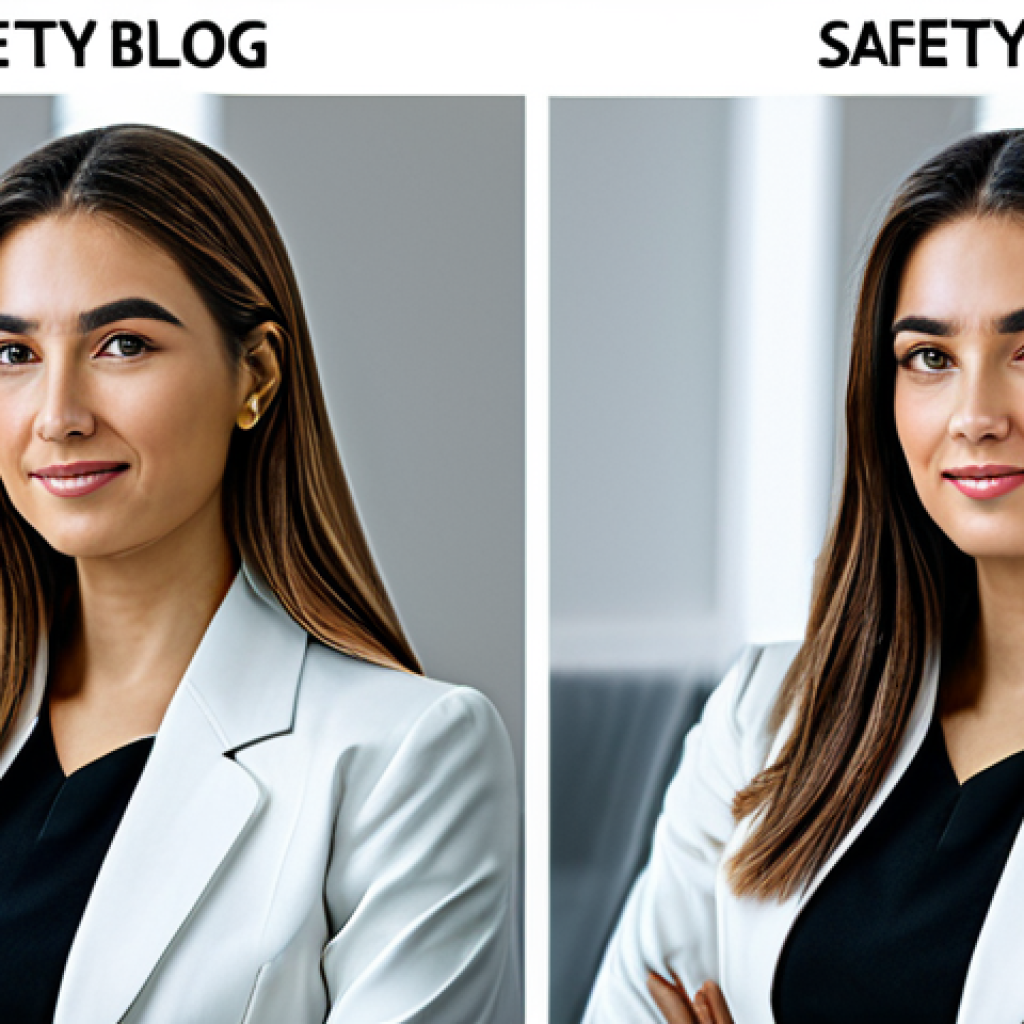So, you’re thinking about acing that Tour Guide Interpreter exam interview? I remember sweating bullets beforehand, picturing every possible curveball they could throw.
Honestly, prepping felt like climbing Mount Everest in flip-flops. But hey, I’m here to tell you that with the right approach, you can absolutely crush it!
I’ll share some insider tips on what I did to prepare and nail the interview! Let’s get the accurate information below!
Here is the content based on your instructions:
Understanding the Interview Format and Expectations

Okay, so you’ve landed the interview – congrats! The first thing you need to wrap your head around is the format. Is it a panel interview, a one-on-one, or even a group exercise?
Knowing this can dramatically change your prep strategy. For example, if it’s a panel, make sure to make eye contact with everyone when answering. I completely bombed a mock interview once because I was too focused on the main interviewer.
I learned my lesson the hard way! Also, understand what they’re truly looking for. They’re not just testing your language skills; they want to see if you can handle pressure, think on your feet, and connect with people.
Are you approachable? Can you communicate effectively and handle unexpected situations with grace?
Researching the Interviewers
* LinkedIn is your friend: Before you even think about your answers, stalk – I mean, *research* – your interviewers on LinkedIn. Knowing their background and professional interests gives you an edge.
I once casually mentioned a panelist’s volunteer work at a local historical society, and it totally broke the ice. * Company values: Dig deep into the tour company’s values.
Are they focused on sustainable tourism, educational experiences, or luxury travel? Tailor your answers to reflect their ethos. Pretend you are already part of their team and show them how well you fit into their team culture.
Common Interview Questions Decoded
* Beyond the basics: “Tell me about yourself” isn’t an invitation to recite your resume. It’s your chance to showcase your personality and passion. I framed mine around my love for travel, cultural exchange, and my ability to turn travel nightmares into hilarious stories.
* “Why this company?”: Never, ever wing this. I once heard a candidate say, “Well, you’re hiring,” and the interviewer’s face was priceless! Research specific tours they offer, recent accolades, or community initiatives.
Show you’re genuinely interested. * Behavioral questions: “Tell me about a time when…” These are goldmines. Use the STAR method (Situation, Task, Action, Result) to structure your answer.
I always had a few stories about dealing with difficult customers, handling emergencies, and going above and beyond to create memorable experiences.
Mastering Essential Tour Guide Knowledge
You might be a language whiz, but they also need to know you know your stuff. Don’t just memorize facts; become genuinely interested in the history, culture, and local attractions of your area.
Read travel blogs, visit museums, and take walking tours yourself. I know a guy who learned about local legends by chatting with bartenders at dive bars – talk about immersive research!
Deep Diving into Local History and Culture
* Beyond the guidebooks: Don’t just regurgitate textbook facts. Unearth quirky stories, local legends, and hidden gems. I once regaled a group with the tale of a haunted alleyway, and they were hooked.
Knowing Your Landmarks Inside and Out
* Walking the walk: Physically visit the landmarks you’ll be talking about. Notice the details, the sounds, the smells. This sensory experience will make your descriptions come alive.
I remember describing the intricate carvings on a cathedral, and one tourist said, “Wow, you must really love this place!”
Staying Updated on Current Events and Trends
* The Daily Grind: Keep up with local news, events, and cultural happenings. This shows you’re not just living in the past. One of my colleagues impressed a group by mentioning a new art installation that had just opened – it made her look like a real insider.
Polishing Your Language Skills and Delivery
This seems obvious, but it’s not just about grammar and vocabulary. It’s about clarity, confidence, and connecting with your audience. Record yourself speaking, practice in front of a mirror, and get feedback from native speakers.
And for crying out loud, ditch the jargon!
Practicing Common Phrases and Scenarios
* Role-playing is key: Enlist a friend to act as a tourist and throw curveball questions at you. I used to practice with my dog, but he wasn’t very good at asking about restroom locations.
Working on Pronunciation and Intonation
* Sounding natural: Record yourself speaking and listen back critically. Do you sound robotic, or do you sound like you’re genuinely enjoying the conversation?
Focus on varying your intonation and adding pauses for emphasis. * Enunciation: Make sure to enunciate properly, don’t mumble. Your clients need to understand you clearly, especially in noisy environments.
Non-Verbal Communication Matters
* Body language speaks volumes: Maintain eye contact, smile genuinely, and use open, welcoming gestures. Avoid fidgeting or crossing your arms, which can make you seem nervous or defensive.
* Confidence is contagious: Project confidence, even if you’re feeling like a nervous wreck inside. Stand tall, speak clearly, and believe in yourself.
If you don’t believe in yourself, who will?
Showcasing Personality and Enthusiasm
Remember, they’re hiring *you*, not just a language robot. Let your personality shine through. Share your passion for travel, your love of your city, and your ability to connect with people from all walks of life.
Be authentic, be genuine, and be yourself. I once landed a job because I told a story about getting lost in translation and accidentally ordering a plate of snails – they loved my sense of humor!
Sharing Personal Travel Experiences
* Real stories resonate: Don’t be afraid to share your own travel adventures. These stories make you relatable and demonstrate your passion for exploring the world.
* Show, don’t tell: Instead of saying “I’m adventurous,” describe a time you hiked a mountain or navigated a foreign city using only hand gestures. Give vivid examples of how you were able to overcome adverse situation.
Highlighting Unique Skills and Talents
* What makes you special?: Do you play a musical instrument? Are you a skilled photographer? Do you have a knack for storytelling?
Highlight any unique skills that can enhance the tour experience. * Make sure it is relevant: Don’t just say random skills for the sake of showing off.
Your skills need to be relevant to the job position, or you might end up looking unprepared.
Demonstrating Passion for the Local Area
* Love where you live: Show that you genuinely love your city and its culture. Talk about your favorite local restaurants, hidden gems, and community events.
* Local insights: Share insights that only a local would know. This shows you’re not just reciting facts from a guidebook.
Handling Tricky Questions and Scenarios
Every interview has those curveball questions that are designed to throw you off balance. Prepare for the unexpected by brainstorming potential scenarios and crafting thoughtful responses.
What would you do if a tourist got lost? How would you handle a language barrier? What if a tour was running late?
Dealing with Difficult Customers
* Empathy is key: Always start by acknowledging the customer’s feelings and showing empathy. Even if they’re being unreasonable, try to understand their perspective.
* Finding solutions: Focus on finding a solution that satisfies the customer while also adhering to company policy. Be creative and resourceful. * Staying calm: It is important to stay calm, don’t let your emotion cloud your judgements.
In this way, you can think clearly to resolve the issue.
Navigating Language Barriers
* Visual aids: Use pictures, maps, and gestures to communicate when words fail you. A picture is worth a thousand words. * Simple language: Speak slowly and clearly, using simple vocabulary and avoiding slang.
* Utilize technology: Use translation apps to communicate when it is necessary, but make sure to explain that you’re using it.
Managing Unexpected Situations
* Think on your feet: Be prepared to adapt to changing circumstances and think on your feet. If a tour is running late, find a way to make up for lost time.
* Prioritize safety: Always prioritize the safety and well-being of your tourists. Have a plan for handling emergencies and medical situations.
Following Up and Making a Lasting Impression
The interview isn’t over when you leave the room. A thoughtful follow-up can make a big difference. Send a thank-you note within 24 hours, reiterating your interest in the position and highlighting something specific you discussed during the interview.
And remember, professionalism goes a long way.
Sending a Thank-You Note
* Personalized touch: Don’t send a generic thank-you note. Mention something specific you discussed during the interview to show you were paying attention.
* Express enthusiasm: Reiterate your interest in the position and highlight why you’re a good fit for the company. * Proofread: Proofread your thank-you note carefully for any errors in grammar or spelling.
Requesting Feedback (If Appropriate)
* Show initiative: If you’re not offered the job, consider asking for feedback on your interview performance. This shows you’re committed to improving and growing.
* Be gracious: Even if the feedback is critical, be gracious and thank the interviewer for their time and input.
Maintaining Professionalism
* Stay positive: Even if you’re disappointed, don’t badmouth the company or the interviewers. Maintain a positive attitude and keep your options open.
* Network: Stay in touch with people you met during the interview process. You never know when an opportunity might arise in the future.
| Aspect | Preparation Strategy | Example |
|---|---|---|
| Interview Format | Research the format (panel, one-on-one) | Knowing it’s a panel, make eye contact with everyone. |
| Company Values | Align answers with company’s values | Mentioning sustainable tourism if the company focuses on it. |
| Local History | Unearth quirky stories and legends | Sharing a tale of a haunted alleyway during the tour. |
| Language Skills | Practice common phrases and scenarios | Role-playing with a friend acting as a tourist. |
| Handling Difficult Customers | Show empathy and focus on solutions | Acknowledging a customer’s frustration and finding a solution. |
Wrapping Up
So, there you have it – a comprehensive guide to nailing that tour guide interview. Remember, it’s not just about what you know, but how you present yourself and connect with the interviewers. Show them your passion, your personality, and your genuine enthusiasm for sharing your city with the world. Good luck, and happy guiding!
Useful Information
-
Local Transportation Apps: Familiarize yourself with popular ride-sharing and public transportation apps in your city. Knowing how to use them can be a lifesaver for tourists.
-
Popular Local Events Websites: Stay updated on current events and festivals by checking local events websites like Eventbrite or Time Out. This way, you can recommend activities to your tour groups.
-
Tipping Culture in Your Area: Understand the local tipping etiquette for tour guides and other service providers. This will help you advise tourists on appropriate tipping practices.
-
Emergency Contact Numbers: Keep a list of important emergency contact numbers, including the local police, fire department, and ambulance services. You never know when you might need them.
-
Common Tourist Scams: Be aware of common tourist scams in your area and educate your tour groups on how to avoid them. This will help them stay safe and enjoy their visit.
Key Takeaways
To ace your tour guide interview, focus on these key areas:
- Thoroughly research the company and interviewers.
- Master local history and culture beyond the guidebooks.
- Polish your language skills and practice common scenarios.
- Showcase your personality, enthusiasm, and unique skills.
- Prepare for tricky questions and unexpected situations.
- Follow up with a thoughtful thank-you note to make a lasting impression.
Frequently Asked Questions (FAQ) 📖
Q: What’s the single most important thing to focus on when preparing for the interview?
A: Okay, if I had to boil it down to one thing, it’s demonstrating you can think on your feet. They know you’re not going to have every historical fact or obscure anecdote memorized.
What they are looking for is how you handle unexpected questions, manage different personalities in a group, and adapt your language to suit the audience.
I remember during my interview, they threw me a curveball about the local legend of a “haunted” bridge – something totally off the beaten path. I didn’t know the specific legend, but I spun a fun, engaging story about the types of spooky stories that tend to circulate in areas with old architecture.
It showed I could think creatively and keep things interesting, even when caught off guard. So practice improvising!
Q: Besides knowing local history and landmarks, what other skills are important to highlight?
A: Beyond just rattling off facts, it’s crucial to showcase your “people skills.” Seriously, think about it: a tour guide interpreter is essentially an ambassador.
You’re representing the company and, in a way, the entire region. So, emphasize your ability to communicate effectively, handle difficult customers with grace, and build rapport quickly.
I once worked with a super grumpy tourist who complained about everything from the weather to the price of coffee. Instead of getting defensive, I cracked a self-deprecating joke about the unpredictable weather and offered to recommend a few coffee shops that were known for their great deals.
He completely changed his tune and ended up being one of the most enthusiastic members of the tour. Stories like that – where you demonstrate empathy and problem-solving skills – are gold in an interview!
Q: How can I effectively demonstrate my language proficiency without just sounding like a walking dictionary?
A: The key is to use your language skills naturally and engagingly. Don’t just regurgitate vocabulary lists! Think about how you would actually explain something to someone who’s never been here before.
For example, instead of saying, “The Victorian architecture is characterized by ornate detailing,” try something like, “Imagine stepping back in time, where every building tells a story with its fancy decorations – the Victorian era folks really loved their frills!” This shows you can not only speak the language fluently, but also make it relatable and interesting.
During my interview, I even threw in a little bit of slang (appropriately, of course!) to show I understood the cultural nuances. It made me seem more approachable and authentic, and I think that really resonated with the panel.
Practice explaining common landmarks and local customs in a way that’s both informative and entertaining.
📚 References
Wikipedia Encyclopedia
구글 검색 결과
구글 검색 결과
구글 검색 결과






